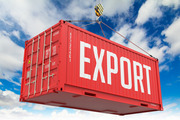Organizational factors play a crucial role in influencing export performance. The effectiveness of a company's internal structure, management practices, and overall strategy can significantly impact its ability to succeed in the global market.
Organizational factors
1. Strategic Planning: A well-defined export strategy is essential for success. Organizations need to assess market opportunities, set clear objectives, and align their resources accordingly. A robust strategic plan ensures a focused approach to international expansion.
2. Market Research: Understanding target markets is vital. Organizations should conduct thorough market research to identify customer needs, preferences, and competitors. This knowledge allows for tailored marketing strategies and product adaptation, improving export performance.
3. Internal Coordination: Effective communication and coordination within the organization are crucial. Departments such as sales, marketing, finance, and logistics must work seamlessly to streamline export processes and avoid delays or misunderstandings.
4. Adaptability:Successful exporters are often those capable of adapting to diverse cultural, legal, and economic environments. Flexibility in product offerings, pricing strategies, and communication styles is essential to meet the specific demands of different markets.
5. Financial Management: Efficient financial practices, including cost control, pricing strategies, and risk management, are vital for sustained export success. A solid financial foundation enables organizations to navigate international challenges and fluctuations.
6. Logistics and Supply Chain Management: Timely and reliable logistics are critical for export success. Efficient supply chain management ensures that products reach their destination in optimal condition, reducing lead times and enhancing customer satisfaction.
7. Government Relations: Building positive relationships with government authorities can facilitate smoother export processes. Understanding and adhering to international trade regulations, tariffs, and compliance requirements are essential for sustained export performance.
8. Technology Adoption: Embracing modern technologies can enhance efficiency in various export-related processes, from order processing to inventory management. E-commerce platforms, data analytics, and digital marketing play significant roles in expanding global reach.

In summary, an organization's success in the export market hinges on strategic planning, market knowledge, internal coordination, adaptability, financial management, logistics efficiency, positive government relations, and technological integration. A well-rounded approach to these factors can contribute to sustained and improved export performance.
Exported products
Exporting encompasses a wide range of products across various industries. Commonly exported products include:
1. Manufactured Goods: Machinery, electronics, automobiles, and industrial equipment are often significant exports for countries with strong manufacturing sectors.
2. Consumer Goods: Clothing, footwear, electronics, and household items are commonly exported as consumer demand extends beyond domestic borders.
3. Agricultural Products: Commodities like grains, fruits, vegetables, and processed food products contribute significantly to international trade.
4. Raw Materials: Natural resources such as minerals, metals, and timber are exported for various industrial applications.
5. Services: Beyond tangible goods, services like tourism, consulting, finance, and information technology are vital components of export economies.
6. Technology and Software: Software, IT services, and technological solutions are increasingly becoming major export products in the digital age.
7. Pharmaceuticals and Medical Equipment: Life sciences and healthcare products, including pharmaceuticals and medical devices, are crucial exports to meet global healthcare needs.
8. Chemicals: Chemical products, including specialty chemicals and petrochemicals, are traded globally for various industrial applications.
9. Energy Products: Oil, natural gas, and renewable energy sources are significant contributors to international trade, meeting global energy demands.
10. Automobiles and Parts: Vehicles, as well as automotive components, are exported by countries with well-established automotive industries.
11. Textiles and Apparel: Clothing, fabrics, and textiles form a substantial portion of international trade, with countries specializing in textile production and fashion.
12. Luxury Goods: High-end products like designer fashion, jewelry, and luxury vehicles are exported to cater to discerning global consumers.
It's important to note that the export landscape is diverse, and the specific products a country exports depend on its strengths, resources, and market demands. Additionally, the service sector, including tourism, consulting, and technology services, plays an increasingly crucial role in international trade.
The role of customs in exporting and importing is pivotal, as it involves the regulatory processes and procedures associated with the movement of goods across international borders. Here are key aspects of customs in the context of global trade:
key aspects of customs
Exporting:
1. Documentation and Compliance: Customs authorities require exporters to submit various documents, such as commercial invoices, packing lists, and certificates of origin. Compliance with these requirements ensures legality and smooth passage of goods.
2. Export Declarations:Exporters must provide accurate information on the nature, quantity, and value of goods being shipped. This information is crucial for customs authorities to assess duties and taxes, if applicable.
3. Tariff Classification:Customs assigns a tariff code to each exported product, determining the applicable duties and taxes. Proper classification is essential for accurate customs clearance.
4. Export Licenses and Permits:Certain goods may require export licenses or permits to comply with national and international regulations. Customs ensures that exporters have obtained the necessary authorizations.
5. Security Screening:Customs plays a vital role in ensuring the security of exported goods. Inspection and verification processes help prevent the illegal movement of goods, such as smuggling or trafficking.
Importing:
1. Customs Declarations:Importers must submit detailed declarations regarding the imported goods, including their value, origin, and classification. This information helps customs authorities assess applicable duties and taxes.
2. Duty Assessment:Customs determines the duties, taxes, and fees applicable to the imported goods based on their classification and value. This revenue collection is a significant source of income for governments.
3. Customs Clearance:Importers go through customs clearance procedures to release their goods for distribution within the importing country. This involves paying duties, taxes, and complying with regulatory requirements.
4. Inspection and Verification:Customs may inspect imported goods to ensure compliance with regulations, quality standards, and safety requirements. This helps protect consumers and the importing country's economy.
In summary, customs is a regulatory authority that ensures the legal and secure movement of goods across borders, collecting duties and taxes, enforcing compliance with regulations, and safeguarding national interests. Smooth cooperation between customs authorities globally is essential for efficient international trade.

customs processes
customs processes are crucial in international trade for several reasons:
1. Legal Compliance:Customs ensures that exporters and importers comply with national and international laws. This helps maintain the integrity of trade transactions and prevents illegal activities such as smuggling and trafficking.
2. Revenue Collection:Customs authorities collect duties, taxes, and fees on imported goods, contributing significantly to a country's revenue. This income supports various government functions and services.
3. Security:Customs plays a vital role in securing national borders by screening and inspecting goods to prevent the movement of illegal or dangerous items. This is crucial for maintaining public safety and national security.
4. Trade Facilitation:Efficient customs procedures facilitate the smooth flow of goods across borders, reducing delays and costs for businesses. This, in turn, promotes economic growth and international trade relationships.
In essence, customs plays a central role in regulating and facilitating international trade, ensuring that goods move legally, securely, and in compliance with established standards and regulations. The efficiency and effectiveness of customs procedures have a direct impact on a country's economic competitiveness and its ability to participate in the global marketplace.